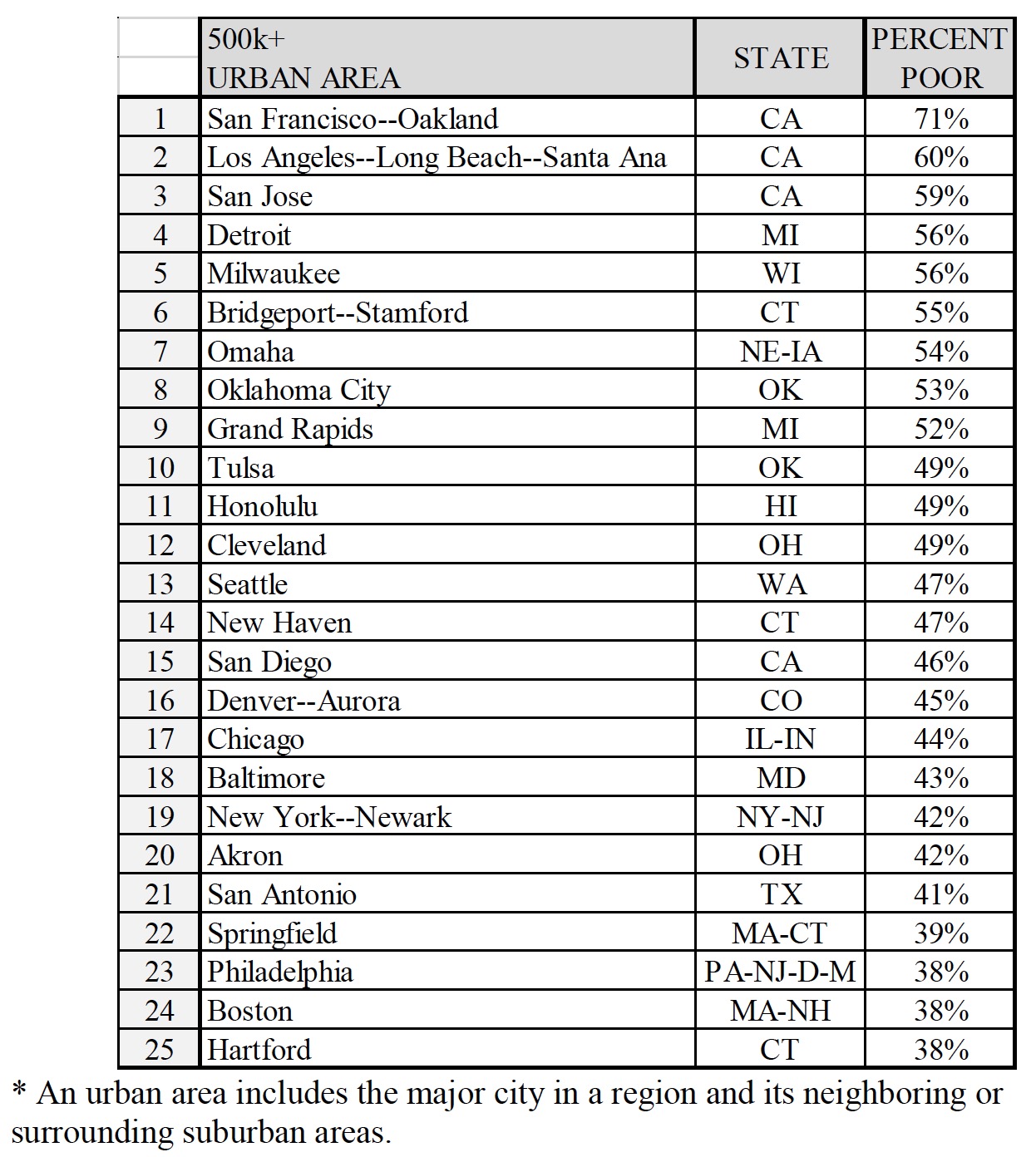TRIP
Executive Summary
Keeping the wheel steady on America’s roads and highways has become increasingly challenging as drivers encounter potholes and pavement deterioration. Nearly one-third of the nation’s major urban roadways – highways and major streets that are the main routes for commuters and commerce – are in poor condition. These critical links in the nation’s transportation system carry 70 percent of the approximately 3.1 trillion miles driven annually in America.
Road conditions could deteriorate even further in the future as the rate of vehicle travel continues to increase and local and state government find they are unable to adequately fund road repairs.
In this report, TRIP examines the condition of the nation’s major urban roads, including pavement condition data for America’s most populous urban areas, recent trends in travel, the latest developments in repairing roads and building them to last longer, and the funding levels needed to adequately address America’s deteriorated roadways.
For the purposes of this report, an urban area includes the major city in a region and its neighboring or surrounding suburban areas. Pavement condition data are the latest available and are derived from the Federal Highway Administration’s (FHWA) 2014 annual survey of state transportation officials on the condition of major state and locally maintained roads and highways, based on a uniform pavement rating index. The pavement rating index measures the level of smoothness of pavement surfaces, supplying information on the ride quality provided by road and highway surfaces. The major findings of the TRIP report are:
Nearly one-third of the nation’s major urban roads are rated in substandard or poor condition, providing motorists and truckers with a rough ride and increasing the cost of operating a vehicle.
- The pavement data in this report, which is for all urban arterial and collector roads and highways, is provided by the Federal Highway Administration (FHWA), based on data submitted annually by state departments of transportation on the condition of major state and locally maintained roads and highways.
- Pavement data for Interstate highways and other principal arterials is collected for all system mileage, whereas pavement data for minor arterial and all collector roads and highways is based on sampling portions of roadways as prescribed by FHWA to insure that the data collected is adequate to provide an accurate assessment of pavement conditions on these roads and highways.
- Nearly one-third (32 percent) of the nation’s major urban roads – Interstates, freeways and other arterial routes – have pavements that are in substandard condition and provide an unacceptably rough ride to motorists.
- An additional 39 percent of the nation’s major urban roads and highways have pavements that are in mediocre or fair condition, and 28 percent are in good condition.
- Including major rural roads, 20 percent of the nation’s major roads are in poor condition, 39 percent are in mediocre or fair condition, and 40 percent are in good condition.
- The following chart shows the 25 urban regions* with a population of 500,000 or greater with the highest share of major roads and highways with pavements that are in poor condition and provide a rough ride.
Download full version (PDF): America’s Roughest Rides and Strategies to make our Roads Smoother
About TRIP
www.tripnet.org
Founded in 1971, TRIP is a private nonprofit organization that researches, evaluates and distributes economic and technical data on surface transportation issues. TRIP promotes transportation policies that help relieve traffic congestion and its impact on air quality, improve road and bridge conditions, make surface travel safer, and enhance economic productivity. TRIP is sponsored by insurance companies, equipment manufacturers, distributors and suppliers, businesses involved in highway and transit engineering and construction, labor unions, and organizations concerned with an efficient and safe surface transportation network that promotes economic development and quality of life.







 RSS Feed
RSS Feed